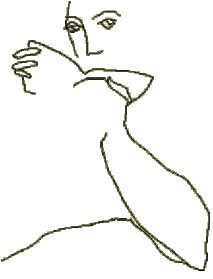Film / Off The Beaten Track review

by Keith Perry (film-site 6degrees)

Off The Beaten Track- Director: Jaap Mees
Jaap Mees is a Dutch Independent filmmaker living in England, where he has set up his own production company Free Spirits. His 65 minute documentary ' Off The Beaten Track was shot on digital video and Betacam in nine days, with Iraqi cinematographer Koutaiba Al Janabi. The film is ostensibly a tour of Ireland's lesser known musical corners,undertaken to shed light on one Tommy Barton, a quiet spoken banjo player, dubbed The Gentleman Busker who died in 1972. The director took an open ended approach to his subject, and the film ultimately emerges as a portrait of an area and the music it inspired. The project was produced by Mees himself and Thomas son, Billy, who is our guide on the journey he made in 1999 from his new hometown of Manchester to his birthplace of Dublin, via Ballyfermot and Howth.
Ireland was relatively untouched by the Industrial Revolution, and until recently remained a rural based community, where people made their own music. There is often talk of a 'revival' in traditional Irish folk music during the 1960s. According to Ronnie Drew,however, it was never in need of reviving, and that period was when innovation crept in. The result was a hybrid form with Alan Kelly of The Barleyshakes claims is more open to improvisation. (Irish instruments such as the Uilleann pipes have been mixed with music from among other places, China and Spain.) Mees has wisely garnered interviews with poets and musicians on both sides of that historical divide, and through chance or design the older appear more elegiac, while there is a kernel of bitterness in the younger generation. " I can't forget old Dublin in my tears" , sings John Barton on the ferry from Wales, while poet Toddy Kennedy opines of the"fucking war" and a "generation who never will grow old".
Mees is an unapologetic humanist, and could be accused of sentimentality; he acknowledges the political and social context, but always emphasises the emotional core of the music. There are plenty of tales recounting happiness among destitution. Billy grew up in a Dublin tenement in the 1940s and 50s, with five sisters, four brothers,mother and father, all in one room. The four smells which spell home for him are the river Liffy at low tide, the Jacob's biscuit factory, Guiness brewery and the knackers yard. There is haunting archive footage from the time- tuberculosis and all- as well as a clip of Thomas' one big screen appearance in film called 'O'Donoghues Opera' (1965).
Mees digressive approach occasionally doesn't work ( as with the Sam Greer, the saddlemaker, who Barney attempts to coax, but who freezes), but it pays off beautifully, when he visits the back room of an unidentified convent and discovers a nun called Sister Breda, who plays Billy a mix of Irish and Latin harp music.
We are told by several credible sources that Barton was gifted and admired, but Mees doesn't quite pin down exactly how influential he was. If, as so many journeys, it doesn't end up where it aimed for, there are enough pleasures on the way to keep most audiences happy. It is also clear that Off The Beaten Track provided a personal testimony for Billy, who we are told at the film's close, has recently succeeded in fulfilling his father's dying wish to be buried in Irish soil.
